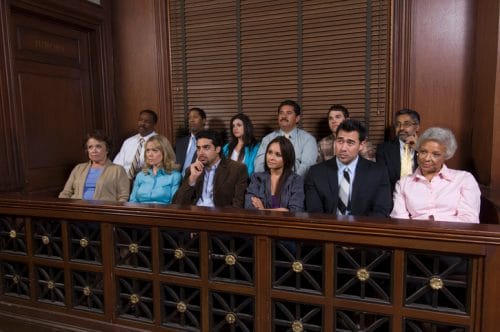If you have been hurt by someone else’s negligence, you can recover for your injuries — even if you were partially or mostly to blame for the accident.

If you have been hurt in any type of accident, you may have questions about personal injury law. Can you recover for your losses? What if you were partially to blame? As experienced personal injury attorneys, we understand that the process is confusing and overwhelming, particularly when you are already dealing with recovering from a traumatic fall, accident, or dog bite. Learning about the law may give you peace of mind as your case moves forward.
Personal injury cases are based on a concept of negligence. In its most basic terms, negligence means that a person did not exercise the same level care that a reasonable person would in a similar situation. For example, if a person texts and drives, then he is not exercising the same level of care that a reasonable person would while driving. If a business owner does not clean up a spill, she is not exercising the same level of care that a reasonable person would if there had been a spill in their business. A finding of negligence will depend on the facts of each case, but as a general rule, if someone did something that was careless or reckless, they may be liable for your injuries.
Of course, many cases are not simple or straightforward. Many of our clients are injured in ways that are more complex, and it may not be as easy to assign fault. There are times when no one is to blame for an accident — and when the person who was hurt was at least partially at fault for what happened. This is known as shared fault or comparative negligence.
California Shared Fault
In California and in most states, if you are at least partially at fault for your injuries, then your recovery will be limited by the amount that you are at fault. The reason behind this rule is simple: a wrongdoer should only be held responsible for the damage that they actually caused, and not for whatever part of the injuries can be attributed to the other party.
It isn’t always easy to assign a percentage of fault. If a person is driving recklessly and causes an accident, but the other party was texting and didn’t notice the reckless driver, how is blame divided? Was the reckless driver 80% at fault and the texting driver 20% at fault? This is a hard task, and one that your skilled personal injury attorney can assist you with in negotiations and/or at trial.
Once percentages have been assigned, however, it is just a matter of reducing an award by the percentage that the victim was at fault. Let’s pretend that a person was involved in a car accident after a driver pulled out from a side street without looking. The driver who did not look was clearly at fault — but the person whose car was hit was not paying full attention and had drifted over the center line a bit. The jury awards the injured party $100,000 for their losses, and finds that they were 10 percent at fault for being over the center line. The award is then reduced by 10 percent, or $10,000, for a total recovery of $90,000.
But what happens if the injured person is mostly at fault for the accident? In California, it is irrelevant if the injured party is more than 50% at fault. While some states bar recovery for victims whose blame is greater than 50%, California still permits people who are mostly at fault for their injuries to recover. Their recovery will just be reduced by the percentage they were at fault. In the example above, if the driver who was hit was 60% at fault, she can will recover $40,000 from the other driver instead of $90,000. This is an important aspect of shared fault in California, because you may still be able to be compensated for your losses even if you were mostly at fault for it.
If you have been hurt through the negligence of another person in California, contact the Law Offices or Larry H. Parker today at 800-333-0000 or info@larryhparker.com. Our attorneys are skilled at handling all types of personal injury claims, and we are passionate about making sure that our clients recover for their losses. We offer free consultations, and we never charge a fee unless we get money for you!



